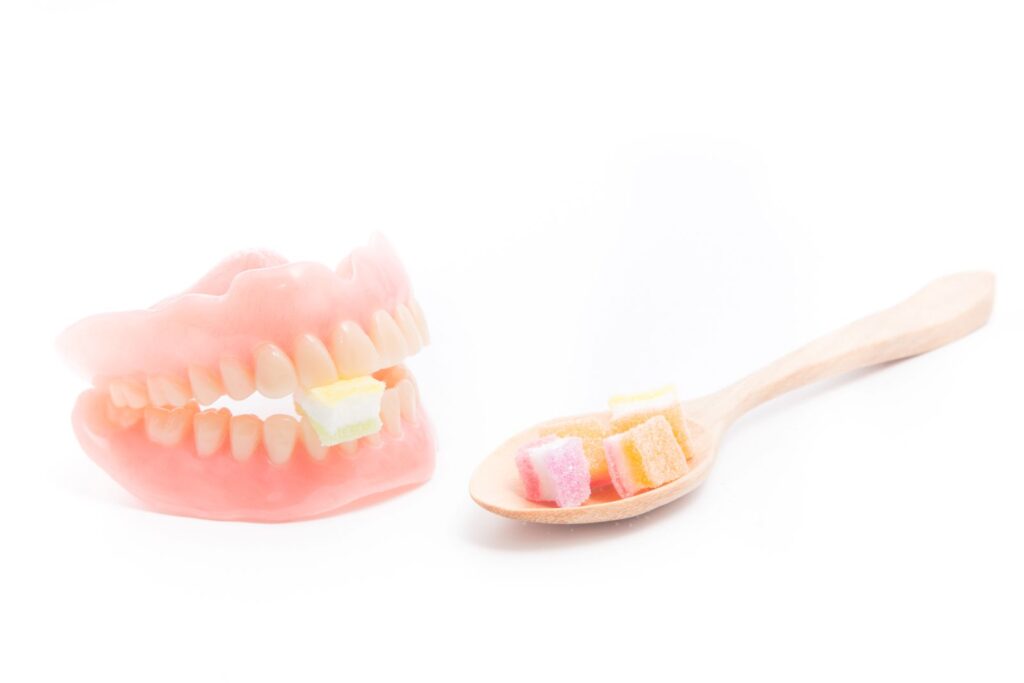
Regardless of how many natural teeth you have remaining, you could potentially benefit from dentures if you have suffered tooth loss. These prosthetics are a versatile solution that can simultaneously restore your smile’s appearance and functionality. With them in place, you can smile confidently, enunciate words clearly, and sufficiently chew food to enjoy a broader range of ingredients.
However, many patients new to dentures complain that their new teeth affect their sense of taste. Continue reading to learn 3 reasons why this sometimes happens and what you can do to overcome it!
Issue #1: Hidden Receptors
On average, most people have about 10,000 tastebuds in their mouths that discern various flavors from the foods they eat. You are probably already aware that your tongue is covered in these microscopic receptors, but did you know they’re also located on the roof of your mouth and in your throat?
That means if you are adjusting to a new set of dentures, there’s a good chance the acrylic base is covering some of your tastebuds, especially if you have a complete set replacing your upper arch. The faux gums of your new teeth rely on a tight suction to the gums over your bony ridges to remain in place, hiding the receptors on the roof of your mouth.
Thankfully, this concern usually resolves itself as your mouth adjusts to using the uncovered tastebuds more effectively.
Issue #2: Dirty Dentures
Your new grin is made from materials like acrylic and porcelain, which can’t develop gingivitis or tooth decay. However, it’s still possible for them to accumulate plaque as bacteria in your mouth, leftover bits of food, and other debris cling to the surface. This can cause issues like gum disease, bad breath, and a lingering, unpleasant taste in your mouth.
Keeping your restoration clean is the best way to prevent this sour sensation. To do so, remove it twice daily to gently scrub all surfaces with a soft-bristled toothbrush and mild dish soap, to avoid scouring them. Then, rinse them thoroughly before replacing them in your mouth to continue your day. If you’re heading to bed soon, it’s best to leave them in a glass of water or soaking solution overnight to kill up to 99% of germs.
Issue #3: Leftover Adhesive
Another common problem that denture-wearers run into is a strange metallic taste that sometimes accompanies adhesives. It can often take about a month for new patients to become fully acclimated to wearing their prosthetics all day. During this time, it’s common to have challenges speaking clearly or chewing food thoroughly.
Often, applying a cream or other adhesive can stabilize your restoration and help you through this transitional period. Unfortunately, some denture glues contain zinc and other ingredients that leave you with an unwanted flavor in your mouth.
Now that you know more about how your new smile might impact your sense of taste, you can take necessary precautions to prevent it from happening!
About the Practice
At Coombs, Ross & Sourlis Family Dentistry of Rock Hill, people of all ages benefit from three dentists with decades of combined experience. They offer a full array of services so you and your family can all receive the same top-quality care conveniently under one roof. They combine a friendly and caring approach with state-of-the-art equipment to enhance patient comfort while delivering accurate, long-lasting results. If you’re worried about the condition of your dentures, you can request an appointment on the website or call (803) 592-6201.

